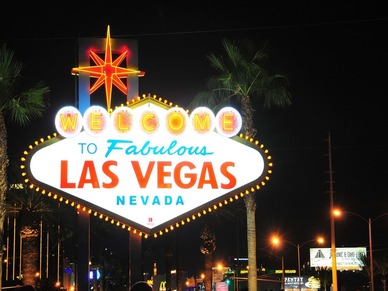A certain desert city’s tourism department hopes you can finish the phrase, “What happens in Vegas…,” a slogan that turns lucky 13 this fall. Yet when it comes to the changing landscape of student learning, what happens in the desert isn’t going to stay there.
At the end of July, the Nevada Supreme Court held hearings on the state’s nascent education savings account law. In 2015, Sen. Scott Hammond sponsored SB 302, and Gov. Brian Sandoval’s signature made all 450,000 Nevada public school students eligible to apply for an account. The ACLU filed a lawsuit to take children’s educational choices away shortly after the law’s passage. The group charges that the accounts violate the state constitution (a group of parents filed another suit taking away parents’ ability to choose how their children learn, saying that the accounts would be illegally funded from a state source dedicated to public schools).
Nevada’s account law is the first such law to allow all public school students the opportunity to use an account to buy a variety of educational products and services. Parental choice in education is no longer rare in the U.S., but many of the laws that give parents options between public and private schools are limited to students that meet select criteria. For example, Tennessee and Mississippi’s education savings accounts, also enacted in 2015, are only available to children with special needs. As many Georgia parents may know, the Peach State has a private school scholarship program exclusively for children with special needs, while Louisiana and Ohio have private school voucher options for children from failing schools. The situation is similar across more than two dozen states.
A ruling in favor of parents and children from Nevada’s Supreme Court would boost efforts in other states, such as Georgia, Texas, Delaware, and Missouri, to name a few, where lawmakers have considered the accounts in recent years. In 2011, Arizona lawmakers enacted the nation’s first education savings account law and have expanded student access to the accounts since its enactment. Arizona children with special needs can apply for an account, along with children from failing schools, adopted children, and children living on Native American reservations, among others. Nevada is the first state to give every public school child this opportunity from day one.
Education savings accounts have also attracted national attention. Republicans included education savings accounts in their 2016 platform (as for Democrats, who the Wall Street Journal says has a built-in “get-out-the-vote operation known as teacher unions,” education savings accounts were noticeably missing from their party positions).
In March, Sen. John McCain (R-AZ) introduced a bill to allow all children attending Bureau of Indian Education schools access to education savings accounts. Politico highlighted these students’ need for quality educational options in November 2015 with a feature headlined “How Washington created some of the worst schools in America.” Former presidential candidate and Sen. Ted Cruz (R-TX) introduced a bill in January that would make all Washington, D.C. children eligible for accounts.
As a result, federal and state lawmakers across the country are watching what happens in Carson City, Nevada. Arizona’s Supreme Court ruled in favor of education savings accounts in 2011 after the state teachers union and other associations brought a lawsuit similar to the ACLU’s charges in Nevada (the Goldwater Institute defended the accounts alongside the Institute for Justice, the group defending Nevada’s accounts). A victory for students in Nevada would mark the second victory for the accounts over challenges that the accounts violate state constitutional provisions that block the use of public funds for private or religious schools.
Five states have passed the accounts so far, but the accounts are turning into a movement offering families flexible opportunities in education. The successes of these programs, and the lifelong knowledge and skills gained—won’t just stay in Vegas.

omg im so sorry